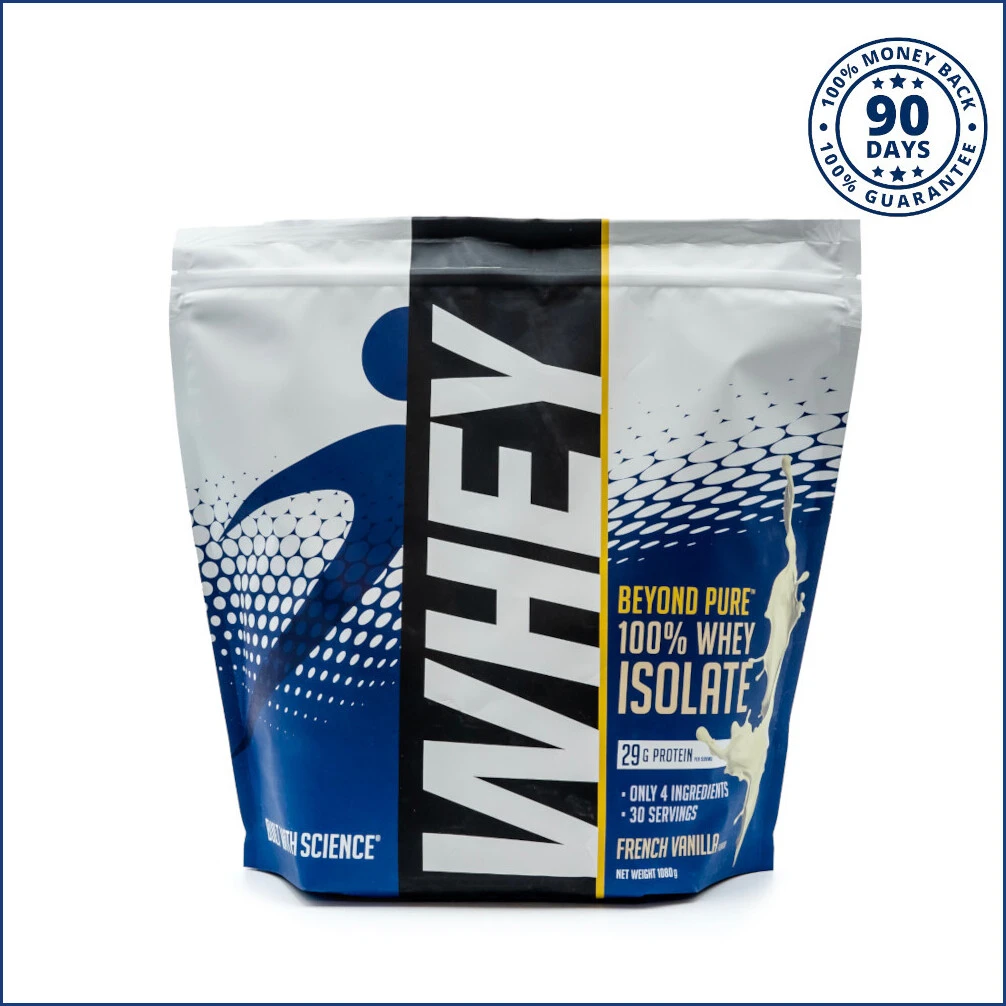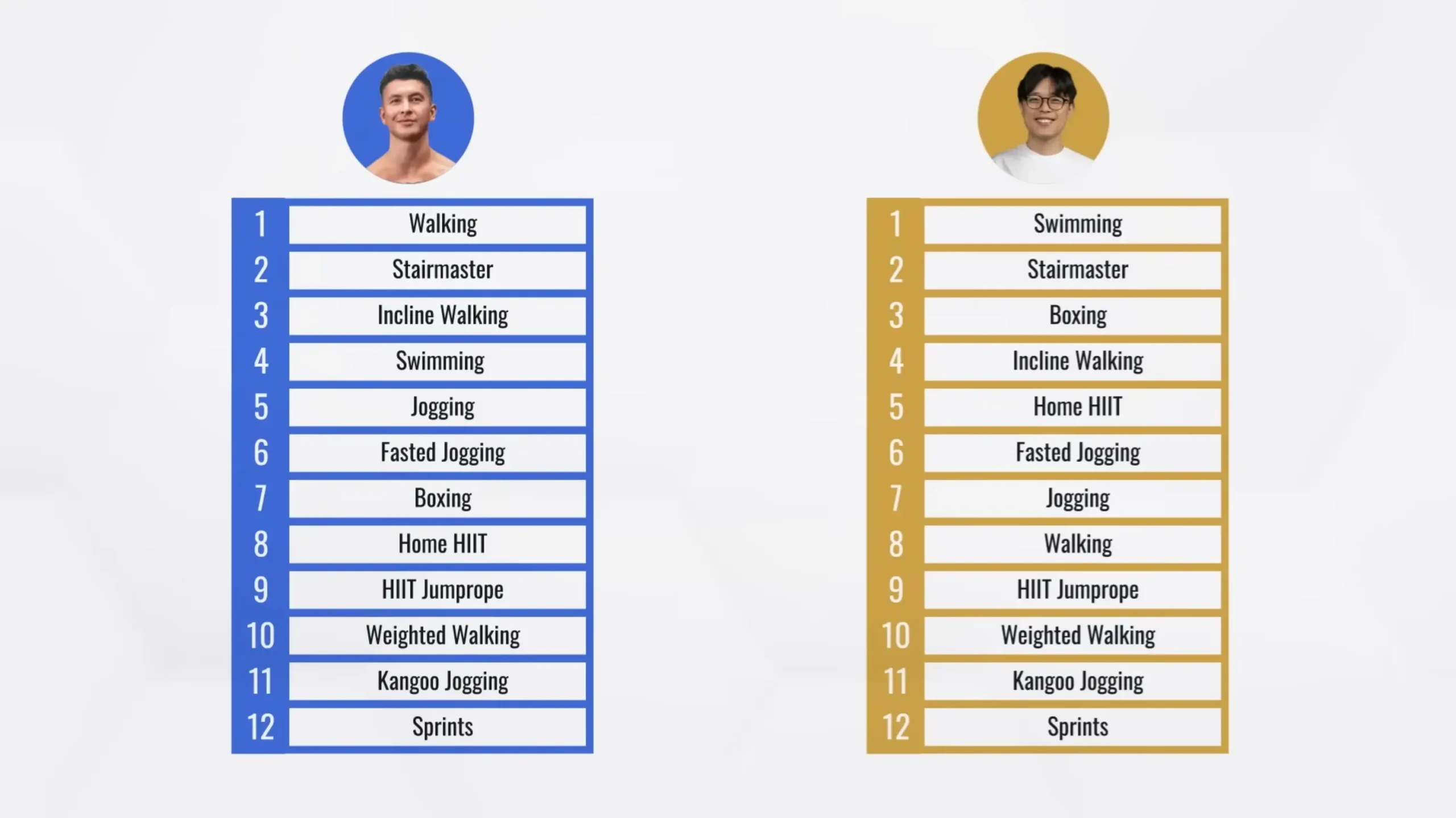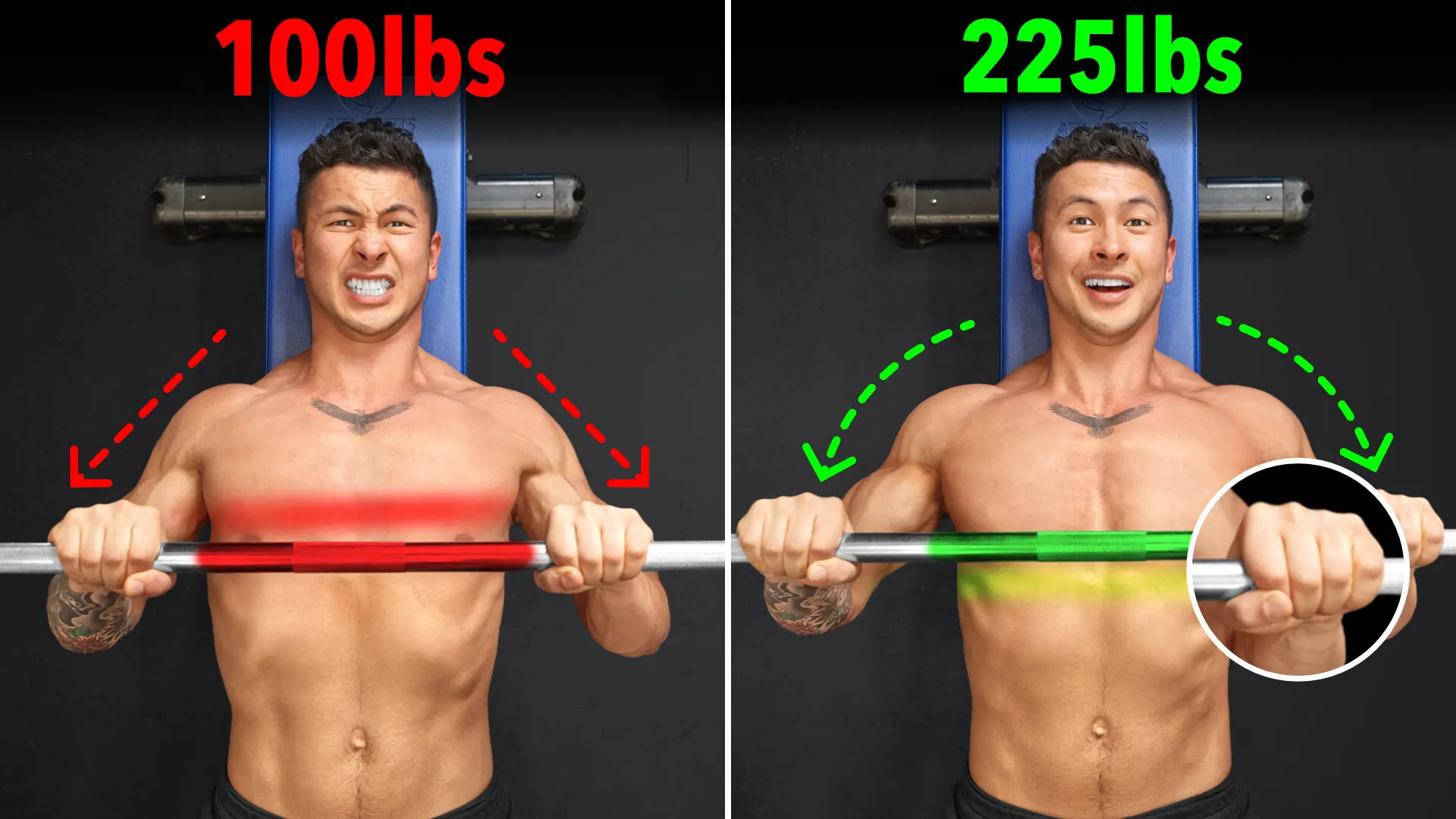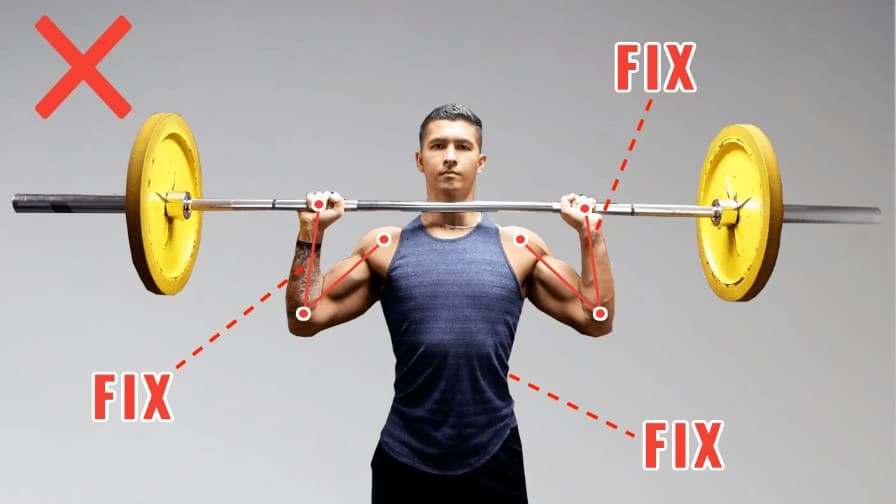
How to Perform the Overhead Press for Bigger Shoulders: 5 Mistakes You’re Probably Making
If you want bigger shoulders, then it's vital that you perform the overhead press both optimally AND safely... Luckily, that's exactly what this article will show you how to do.
Well-developed, rounded shoulders are one of many key features that dramatically improves and completes a powerful looking upper body(Upper Body Workout located here)
And in order to best grow this muscle, there’s no doubt that the overhead press should be a staple in your routine.
As it not only enables you to effectively target the shoulders and the several other upper body muscles as shown here:
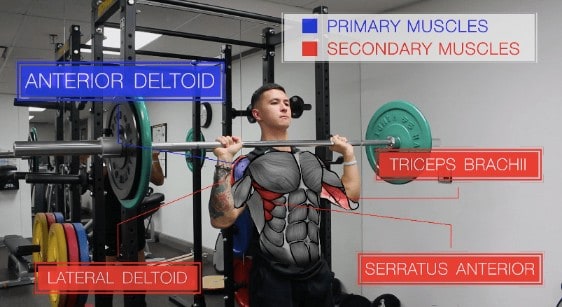
...but it also enables you to easily overload and lift the most weight overhead when compared to other shoulder movements(Shoulder Workout Article).
However, despite the seemingly straightforward movement pattern of the overhead press, it's actually quite a technical lift.
And if you want to maximize its effectiveness while reducing your risk of injury then there’s a lot more that goes into it than simply lifting a bar overhead.
Therefore, in this article I’ll cover the five most common errors people make with the overhead press, and more importantly, I’ll show you how to easily fix them right away.
Before that: if you're looking for a training program that'll help you avoid these mistakes altogether, I've got just the thing for you. Every BWS program is designed to help you transform your physique in the most time-efficient manner. And best of all? It's all rooted in science. For more information on how BWS programs can help you to build muscle - FAST:
Click the button below to take my analysis quiz to discover the best program for you:
↓
Mistake 1: Flaring The Elbows Throughout The Lift
One common overhead pressing mistake is flaring the elbows out throughout the whole movement.
From the front view, it looks like this where your elbows are pointed directly out to your sides throughout the press:
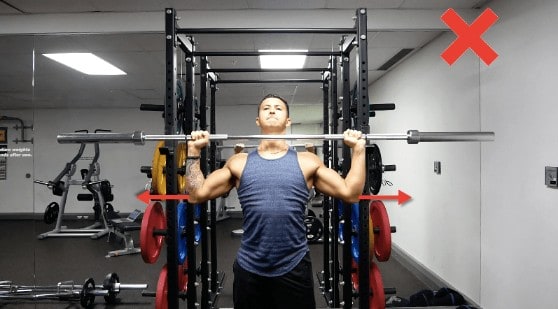
This is often mistakenly done by gripping the bar too wide which causes the forearms to be misaligned with your hands as shown here:
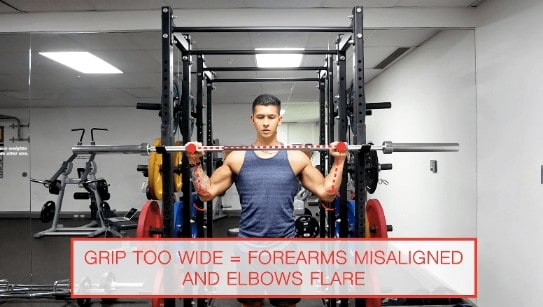
So what you want to do instead, is grip the bar such that your thumbs are positioned just outside of your shoulders:
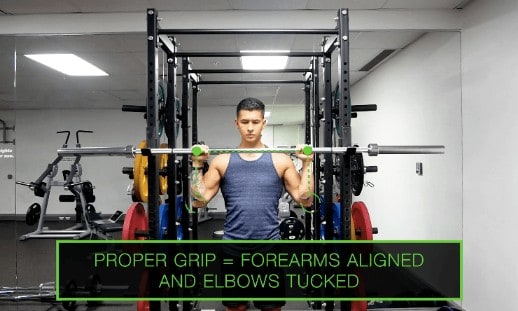
This enables your forearms to be positioned directly under your hands like so, leading to a stronger and safer press. And in addition to this, at the bottom position, you need to be initiating the press in something called the scapular plane.
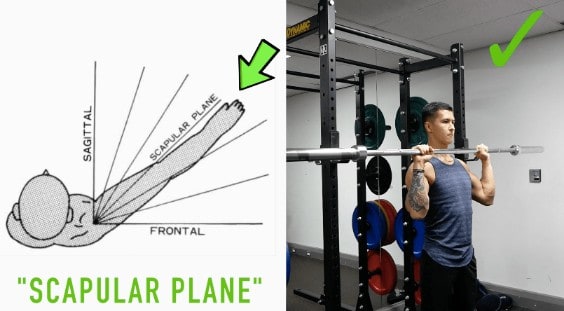
Such that at the bottom position your elbows are pointed slightly forward, or in other words at roughly a 30 degree angle from directly sideways.
Then only as you press up should you naturally allow your elbows to turn out to the side and then return back to the scapular plane as you descend back down to the bottom position.
This has been shown in multiple biomechanical analysis studies to not only be a safer and more comfortable position for the shoulder joint to be in... But also more effective for overhead pressing - which you’ll likely immediately notice yourself after implementing this fix.
Mistake 2: Not Maintaining a Straight Bar Path
In order to perform the overhead press most efficiently, the barbell path needs to be as short as possible.
Simply meaning that it needs to ideally travel in a vertical line from start to finish:
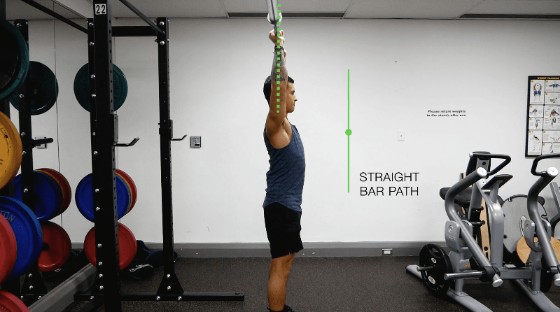
Rather than in a curved path around your head:
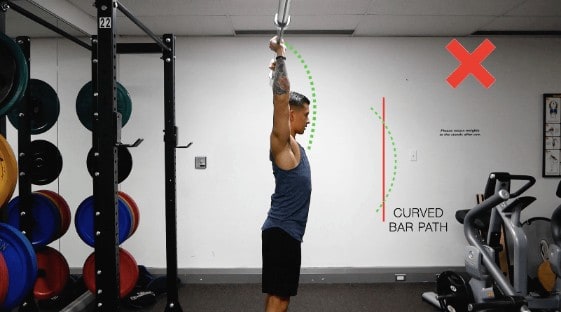
But to successfully accomplish this, you need to create space for the bar as you press.
This is done by:
- First very slightly leaning back by sticking your chest up and out before you initiate the press
- Then, pull your chin back such that the bar is able to travel straight up as you begin to press
- As the bar passes the top of your head, you pull your chin back forward into it’s neutral position
At the top position, the bar should now be positioned directly over your shoulders, hips, and feet in a straight line.
Avoid excessively sticking your head forward when doing so and also avoid positioning the bar too far back at the top.
Instead, focus on moving the bar as vertically as possible as this will keep your centre of gravity in an optimal position and enable you to lift the most weight possible.
Keep in mind though that this mistake may also be due to various mobility restrictions that your body is compensating for, which will be addressed in the next mistake.
Mistake 3: Excessively Arching The Lower Back
Excessively arching the lower back is probably the most problematic mistake that lifers make when it comes to this movement.
Not only does the literature emphasize that this mistake often leads to acute back injuries and lower back pain, but it’s also been shown to significantly reduce overhead force and your ability to press heavy loads.
...which is obviously detrimental to your shoulder development in the long run.
So instead, you want to keep your lower back as neutral as possible throughout the lift.
But if you’re struggling with this AND you’re not using a weight that’s too heavy for you, then there’s a couple things you need to do.
2. You need to ensure that your body is as stable as possible throughout the movement.
To do this, before you even initiate the press, you need to first actively squeeze your glutes, quads and your abdominals:
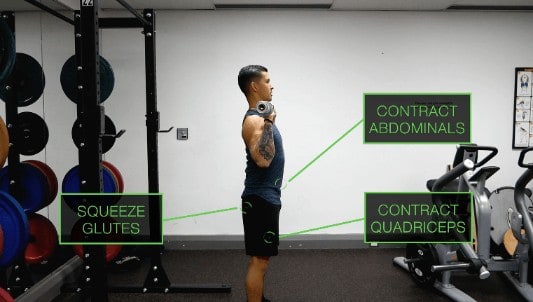
Contracting these three muscles before and during the press will provide your body with the stability it needs to prevent your lower back from arching during the press.
2. Work on your mobility in key areas.
Hyperextending the lower back is often a compensation for a lack of mobility in other areas.
Latissimus Dorsi ("Lats")
One such area is the lats - mainly because one of the key attachment points of the lats is the back of the upper arm:
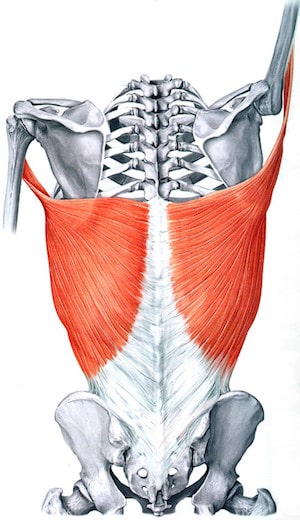
So when this muscle is tight, which it often is, it actually restricts your ability to lift your arm overhead. Which your body then compensates for by arching your lower back during any overhead pressing movements:
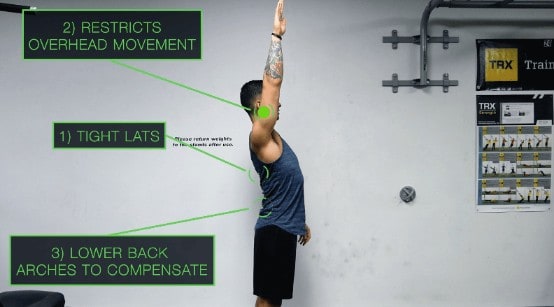
So to improve this, shortly before you begin your sets of overhead press, simply foam roll side to side along both sides of your lats.
Do this for a few minutes in order to loosen them up and afterwards you’ll likely notice your press feels a lot smoother and easier to execute properly.
Thoracic Extension ("Upper Back Mobility")
Now another problematic area is something called thoracic extension, or in other words your upper back mobility.
Again, similar to the lats, and as stated in this study from the Journal of Orthopedic Sports Physical Therapy:
The higher you raise your arms overhead, the more thoracic mobility is needed to maintain proper shoulder alignment.
Therefore, without sufficient thoracic mobility your body will tend to once again compensate by arching your lower back to get your arms fully overhead.
So to improve this, after you finish foam rolling your lats, you can then:
- Place the foam roller across your upper/mid back with your hands placed on your head
- Let your upper back extend over the foam roller as you exhale while avoiding excessively arching your lower back
- Hold for 5 deep breaths then repeat this a couple more times further down your upper back
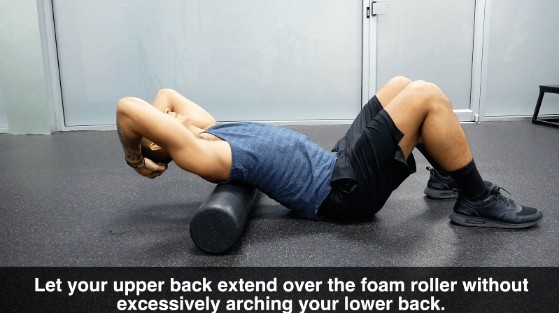
After that, proceed to your overhead pressing sets and it'll likely feel a whole lot easier to get those arms overhead.
Knowing how limited mobility in certain muscle groups can impact others (plus how to fix it!) is pretty complicated. Thankfully, though, the team here at BWS has the necessary expertise to do just that. Our 3-on-1 coaching program takes the guesswork out of training, nutrition, and even mobility work - so you can focus on what matters: making gains. If you're interested:
Click the button below to find out more about the 3-on-1 coaching program:
↓
Mistake 4: Excessively Bending The Wrists
Another common movement error is excessively bending the wrists during the press.
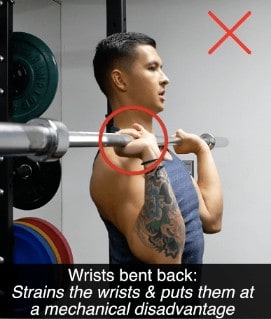
This not only strains the wrists but will limit your pressing strength since the wrists are now at a mechanical disadvantage.
Instead, you want to keep the wrists in a neutral position and inline with your forearms as you press.
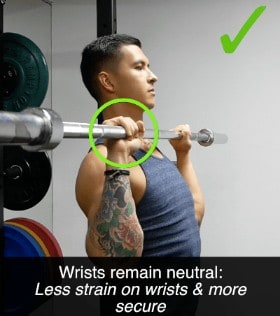
And I find the best grip to accomplish this is something called the "bulldog grip".
You can try this grip out by implementing the following 3 steps when you grab the bar:
Step 1: Place the bar such that it sits across the base of your palm
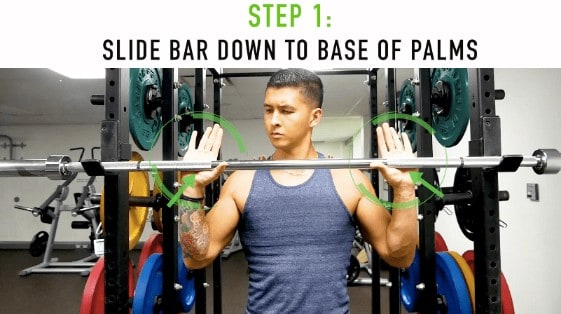
Step 2: Rotate your hands inward
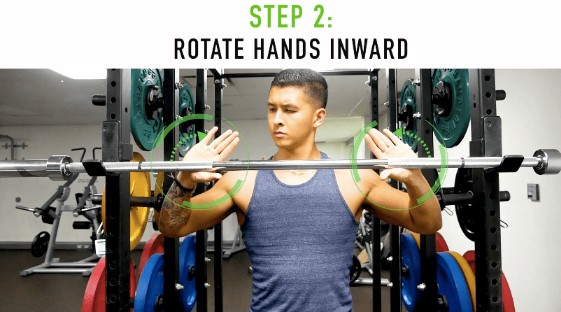
Step 3: Grip the bar
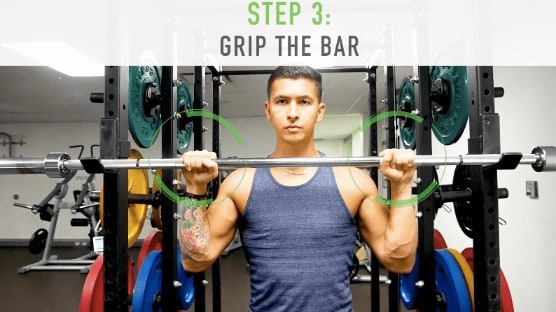
If you’ve never used this grip before, you’ll immediately notice that it feels a lot more secure and easier to keep your wrists neutral as you press overhead.
Mistake 5: Cheating with Momentum
During the overhead press your body should be thought of as a stable pillar, with your arms moving overhead to press the weight.
However, what a lot of people do, especially when they begin to fatigue, is start to incorporate more of their legs into the movement. This is done by bending then extending them in order to push up more weight or more reps.
And although this isn’t necessarily a bad thing, it IS a completely different movement and is actually something called the "push press".
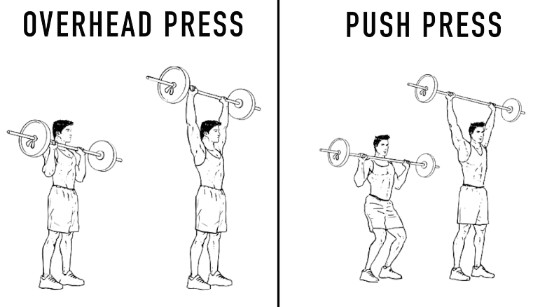
This exercise shifts some of the tension away from the shoulders due to the added momentum.
So if you tend to this, it’s simply an indication that you should either:
- Lighten the weight
- Implement the previous fixes discussed such that you’re able to perform your overhead pressing sets with no cheating whatsoever
Do keep in mind though that performing the push press separately can be an effective way to improve your strict overhead press. But it is a separate movement that involves more of your lower body and less of your shoulders when compared to the overhead press.
And therefore, it shouldn’t be used simply as a compensation to lift more weight when performing your strict overhead pressing sets.
Summary
To sum everything up for you, here are the main points you want to takeaway from this video:
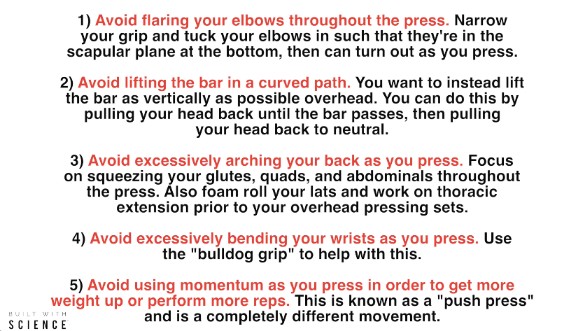
As I’ve said before, choosing the right exercises is one thing, but performing them optimally and safely is what makes all the difference in the long run. And that's exactly what's prioritized in my BWS programs - designed to transform your body not only as efficiently as possible, but also as safely as possible. Check them out if you're interested in joining the Built With Science family:
Click the button below to take my analysis quiz to discover the best program for you:
↓
Anyways, that’s it for this article. Let me know if you have any questions down below and show your support by giving me a follow on Instagram , Facebook , and Youtube where I’ll be posting informative content on a more regular basis! Cheers!

